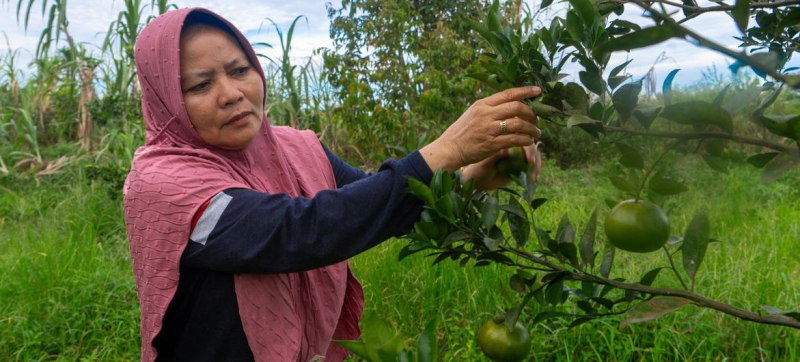- Another July warrier shot in head, critical in Khulna hospital |
- NCP Khulna Chief Critically Shot Amid Rising Political Violence |
- Indian MP Warns Bangladesh Faces Rising Lawlessness |
- Law and Order Must Be Ensured Ahead of Polls: Prof Yunus |
- Tough times ahead, everyone must remain united: Tarique Rahman |
Local Leadership Drives Indonesia’s Climate Goals

The Green for Riau initiative in Indonesia is protecting forests and empowering communities.
In the heart of Indonesia’s vast tropical landscapes, the province of Riau — known for its rich peatlands and biodiversity — is emerging as a beacon of climate leadership through a new initiative that puts local leadership and customary knowledge at the centre of climate action, in line with national policies.
Indonesia’s national climate strategy aims to reach net-zero emissions by 2060. A key element is ensuring forests absorb 140 million tonnes of CO₂ annually — the equivalent of taking 30 million cars off the road.
Riau’s role is critical. The province has long struggled with high deforestation rates and land degradation caused by peatland drainage, fires and rapid conversion to agriculture.
Launched earlier this year, the Green for Riau initiative is reshaping how forest-based climate solutions are implemented.
“Economic and climate goals can very much co-exist,” said Abdul Wahid, Governor of Riau. “We are proud to lead the way in showing that local action can deliver global results.”
The programme, a collaboration between Indonesia’s government, UNEP, FAO and supported by the UK, is already demonstrating how local solutions can address global challenges.
Nearly half of Riau’s seven million people live in rural areas and depend on forests for their livelihoods. The initiative supports them through sustainable agroforestry, eco-tourism and non-timber forest products, ensuring conservation goes hand in hand with economic progress.
By aligning provincial action with national goals, Riau is showing how the Sustainable Development Goals can be realised from the ground up, said UN Resident Coordinator Gita Sabharwal.
At the heart of the project is the REDD+ mechanism, which rewards measurable emission reductions. With nearly five million hectares of peatland, Riau could become the first Indonesian province to access REDD+ finance.
Technology such as AI, satellite monitoring and carbon forecasting is being paired with local wisdom and traditional practices to ensure environmental decisions respect generations of indigenous knowledge.
“You cannot entirely depend on AI for environmental decision making,” said Datuk H. Marjohan Yusuf, Chairman of the Malay Customary Institute of Riau. “It needs to take into account adat — local wisdom developed from observing nature.”
The initiative is empowering communities, strengthening land governance and building financial frameworks to attract both public and private investment. Protecting forests in Riau also safeguards endangered species such as the Sumatran orangutan, tiger and elephant.
Riau is piloting REDD+ results-based payments at the provincial level, providing a scalable model for inclusive, high-integrity forest finance. These efforts could unlock hundreds of millions of dollars annually for conservation and development.
Global investors have shown strong interest in supporting Riau’s transition, seeing it as a model for sustainable and inclusive climate action.

